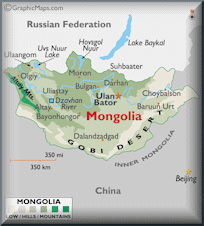-
-

Please Wait...
-
.org.mn Mongolian Domain Country Information - .org.mn Mongolia Country Information
.org.mn

Price and Requirements for .org.mn Domains
![]()

.org.mn Mongolia Country Information
Mongolia is a landlocked country in East and Central Asia. It is bordered by Russia to the north and China to the south, east and west. Although Mongolia does not share a border with Kazakhstan, its western-most point is only 38 kilometres (24 mi) from Kazakhstan's eastern tip. Ulan Bator, the capital and largest city, is home to about 45% of the population. Mongolia's political system is a parliamentary republic.
The area of what is now Mongolia has been ruled by various nomadic empires, including the Xiongnu, the Xianbei, the Rouran, the Gökturks and others. The Mongol Empire was founded by Genghis Khan in 1206. After the collapse of the Yuan Dynasty, the Mongols returned to their earlier pattern of constant internal conflict and occasional raids on the Chinese borderlands. In the 16th and 17th centuries, Mongolia came under the influence of Tibetan Buddhism. At the end of the 17th century, all of Mongolia had been incorporated into the area ruled by the Qing Dynasty. During the collapse of the Qing Dynasty in 1911, Mongolia declared independence, but had to struggle until 1921 to firmly establish de facto independence from the Republic of China, and until 1945 to gain international recognition.
As a consequence, it came under strong Russian and Soviet influence; in 1924, the Mongolian People's Republic was declared, and Mongolian politics began to follow the same patterns as the Soviet politics of the time. After the breakdown of communist regimes in Eastern Europe in late 1989, Mongolia saw its own Democratic Revolution in early 1990, which led to a multi-party system, a new constitution in 1992, and transition to a market economy.
At 1,564,116 square kilometres (603,909 sq mi), Mongolia is the 19th largest and the most sparsely populated independent country in the world, with a population of around 2.75 million people. It is also the world's second-largest landlocked country after Kazakhstan. The country contains very little arable land, as much of its area is covered by steppes, with mountains to the north and west and the Gobi Desert to the south. Approximately 30% of the population are nomadic or semi-nomadic. The predominant religion in Mongolia is Tibetan Buddhism, and the majority of the state's citizens are of the Mongol ethnicity, though Kazakhs, Tuvans, and other minorities also live in the country, especially in the west. About 20% of the population liveon less than US$1.25 per day. Mongolia joined the World Trade Organization in 1997 and seeks to expand its participation in regional economic and trade regimes.
Mongolia is the world's 19th-largest country (after Iran). It is significantly larger than the next-largest country, Peru. It mostly lies between latitudes 41° and 52°N (a small area is north of 52°), and longitudes 87° and 120°E.
The geography of Mongolia is varied, with the Gobi Desert to the south and with cold and mountainous regions to the north and west. Much of Mongolia consists of steppes. The highest point in Mongolia is the Khüiten Peak in the Tavan bogd massif in the far west at 4,374 m (14,350 ft). The basin of the Uvs Lake, shared with Tuva Republic in Russia, is a natural World Heritage Site. Most of the country is hot in the summer and extremely cold in the winter, with January averages dropping as low as −30 °C (−22 °F).
.org.mn Mongolia Domain Name - Country Information
| Country Domain | Mongolia Domain Name .org.mn |
|---|---|
| Country Information | Mongolia Domain Country Information .org.mn |
| TLD Bulk & Advanced Search | Mongolia Bulk Domain Registration .org.mn |
| WhoIs Server | .org.mn Whois Server Information |
| Domain Renewals | Renewal Mongolian Domain .org.mn |
| Domain Transfer | Transfer Domain .org.mn |
| Domain Hosting | .org.mn Mongolia Web Hosting |
| SSL Certificates | SSL Certificates |
| Email Services | .org.mn Mongolia Email Services |
| Domain FAQ | .org.mn Domain Registration FAQ |
Mongolia Country Information Search Terms
Mongolian Domain Country Information Mongolian Domain Registrar Mongolian World Wide Domain Registration Mongolian Country Code Top Level Domain .org.mn Domain Information Mongolian Country Information Mongolia Country Information










